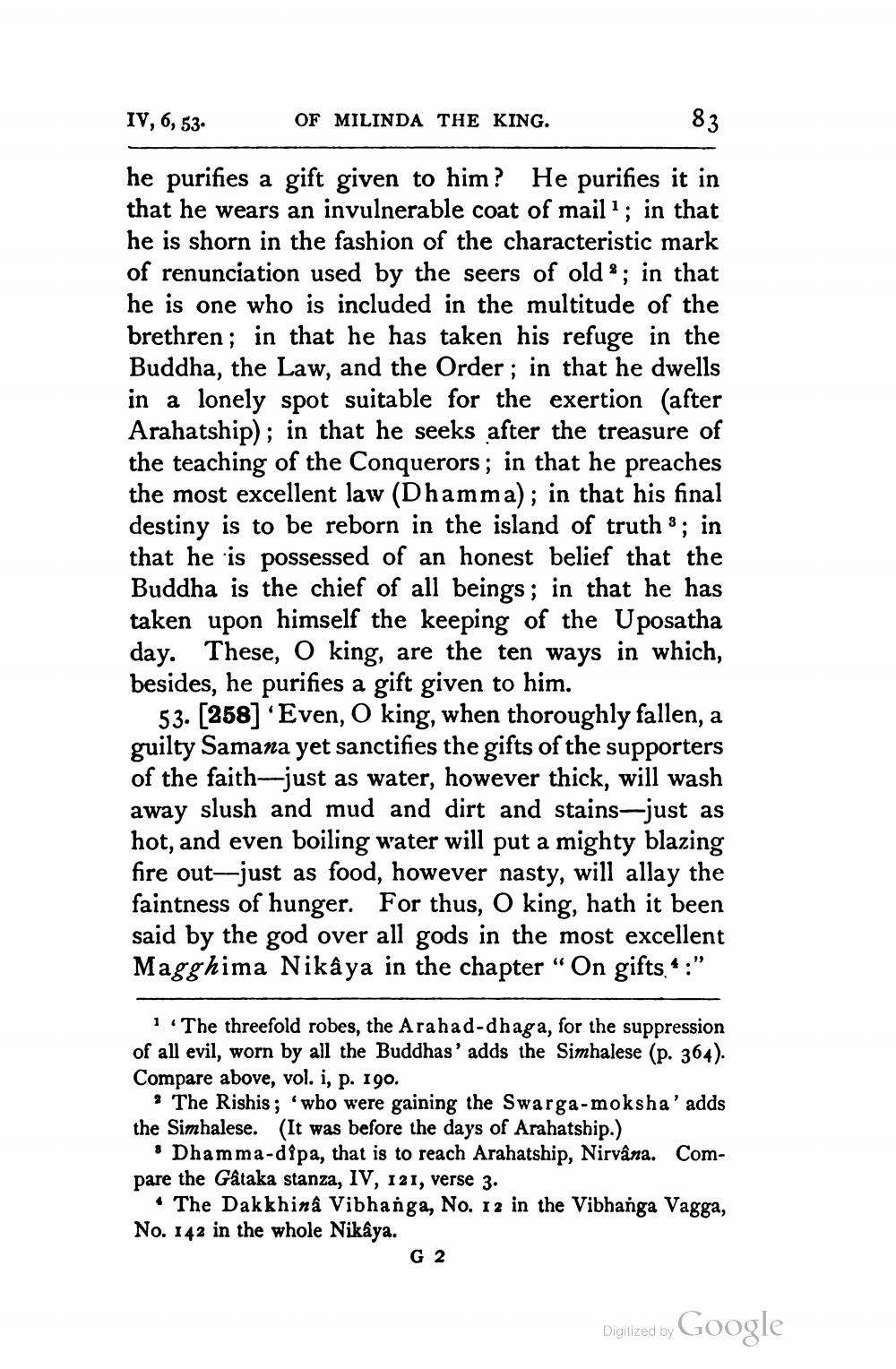________________
IV, 6, 53.
OF MILINDA THE KING.
83
he purifies a gift given to him? He purifies it in that he wears an invulnerable coat of mail 1; in that he is shorn in the fashion of the characteristic mark of renunciation used by the seers of old ; in that he is one who is included in the multitude of the brethren; in that he has taken his refuge in the Buddha, the Law, and the Order; in that he dwells in a lonely spot suitable for the exertion (after Arahatship); in that he seeks after the treasure of the teaching of the Conquerors; in that he preaches the most excellent law (Dhamma); in that his final destiny is to be reborn in the island of truth 3; in that he is possessed of an honest belief that the Buddha is the chief of all beings; in that he has taken upon himself the keeping of the Uposatha day. These, O king, are the ten ways in which, besides, he purifies a gift given to him.
53. [258] Even, O king, when thoroughly fallen, a guilty Samana yet sanctifies the gifts of the supporters of the faith-just as water, however thick, will wash away slush and mud and dirt and stains-just as hot, and even boiling water will put a mighty blazing fire out—just as food, however nasty, will allay the faintness of hunger. For thus, O king, hath it been said by the god over all gods in the most excellent Magghima Nikâya in the chapter “On gifts.* :"
1 The threefold robes, the Arahad-dhaga, for the suppression of all evil, worn by all the Buddhas' adds the Simhalese (p. 364). Compare above, vol. I, p. 190.
? The Rishis; 'who were gaining the Swarga-moksha' adds the Simhalese. (It was before the days of Arahatship:)
Dhamma-dipa, that is to reach Arahatship, Nirvana. Compare the Gâtaka stanza, IV, 121, verse 3.
• The Dakkhina Vibhanga, No. 12 in the Vibhanga Vagga, No. 142 in the whole Nikâya.
G2
Digitized by Google




